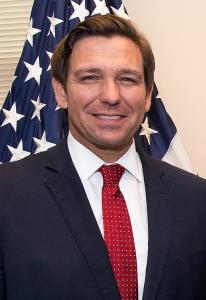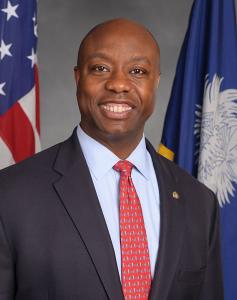Lately, he has been distancing himself from the pro-life movement. Pro-life Christians were a major factor in his 2016 victory, and he delivered for them, appointing conservative Supreme Court justices that resulted in the overturn of Roe v. Wade.
But Trump favored overturning that decision so as to return the issue to the states. Post-Roe, the pro-life struggle moves to state legislatures. Trump is not as committed to opposing abortion on the state level. He has criticized pro-lifers, with their efforts to ban all abortions, for damaging the Republican brand, blaming them for the party’s relatively poor showing in the midterm elections.
Pro-life activist Nicholas Rowan has written a piece for the Washington Examiner, the conservative newspaper in our nation’s capital, entitled Trump and the religious Right’s unhappy ending. He argues that religious conservatives made a “brilliant” bargain: They would support Trump, even though he didn’t conform to their usual moral standards, and in return he would appoint conservative Justices who might overturn Roe v. Wade. But now, the climate is different. Rowan says,
For many of the people who count themselves as pro-life whom I have spoken to since then, Trump’s disavowal of their efforts was the moment in which they consciously understood him as no longer a useful ally. In 2016, he was tethered to the pro-life movement and the religious Right by his promise to appoint originalist judges to the court. In 2020, similar rules applied. But now, as 2024 rolls around, Trump either feels that he does not need these voters — or it’s possible that he simply doesn’t want them. . . .
The transaction they made with the Manhattan billionaire in 2016 was a brilliant play, but it was the sort of deal that could only be made once. The battle lines for religion and politics are less clear post-Roe, and it’s going to take much more than the promise of judicial appointments to win the religious Right’s loyalty.
Rowan says that religious conservatives have no more reason to support Trump and will now go back to their former practice of prioritizing piety and morality in their favored candidates.
Indeed, two presidential candidates measure up well by those criteria. Former Vice President Mike Pence has long been an open and active evangelical. So has South Carolina senator Tim Scott, who has put issues of faith at the forefront of his campaign.
But those two have not gained much traction so far with Christian voters. Politico‘s Adam Wren, Natalie Allison, and Meridith McGraw argue, in the words of the title of their article, that Trump killed the ‘values voter’ wing of the GOP. It isn’t coming back in 2024.
Today, they say, religious conservatives are no longer fixated on “values.” Rather, they want someone who will fight.
Unlike in Republican presidential primaries past, just two candidates — Pence, the former Catholic turned evangelical, and Scott, who speaks of finding a “God Solution” to the country’s racial divide — stand alone in making explicit appeals to Evangelical voters. Trump and DeSantis, meanwhile, are relying solely on their reputations as brute-force brawlers in the culture wars. . . .
Their success — and the difficulties Pence and Scott are having courting voters, according to recent polls — reflects a major change in the evangelical bloc of the GOP electorate in the Trump era. . . .
“Evangelicals have changed and have become more populist and more renegade and wanting to fight more and engage in Christian culture,” said David Brody, the chief political analyst for Christian Broadcasting Network, who wrote the “The Faith of Donald J. Trump.” “Trump has a following who wants to fight because they see culture going to hell in a handbasket, and that’s what’s winning the day in politics. And that’s why he is winning with them.”
Do you think religious conservatives will abandon Trump and revert to their “values-based” politics? Or do you think they will continue to support him as someone who will “fight” for their interests?
Notice that the Politico article thinks Trump will be a “brute-force brawler in the culture wars.” But will he be, given his cooling to the pro-life cause and his apparent opposition to DeSantis’s crusade against woke ideology?
Will evangelicals and other religious conservatives still support him even if he is not going to “fight” for those issues? Will they support him anyway, and, if so, why?
Or will the the pro-fight Christians turn to DeSantis, who was perhaps trying to appeal to both aspects of the religious vote with his ad God Made a Fighter?
Photos:
Ron DeSantis, U.S. Secretary of Defense, CC BY 2.0 <https://creativecommons.org/licenses/by/2.0>, via Wikimedia Commons
Donald Trump by Gage Skidmore from Surprise, AZ, United States of America, CC BY-SA 2.0 <https://creativecommons.org/licenses/by-sa/2.0>, via Wikimedia Commons
Tim Scott By U.S. Senate Photographic Studio-Renee Bouchard – http://www.scott.senate.gov/sites/default/files/Scott_Tim-012213-16025-0016-rb-CFF.jpg, Public Domain, https://commons.wikimedia.org/w/index.php?curid=26242879
















